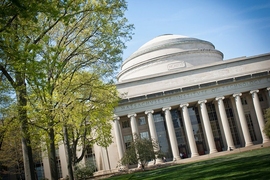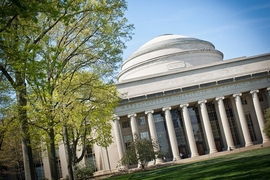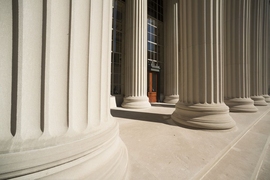After MIT and Harvard University led the way on Wednesday, a growing number of colleges and universities around the country have begun or are actively planning to take legal action against a surprise policy issued by the U.S. Immigration and Customs Enforcement (ICE) and the Department of Homeland Security. The new policy would have the effect of banning any foreign student with an F-1 student visa from entering the U.S., or from remaining in the country, if their classes were fully online as a result of the Covid-19 pandemic.
The lawsuit filed by MIT and Harvard seeks an injunction to ban implementation of the new policy, which was issued without warning on Monday with no opportunity for review or comment. Many other institutions, including major state systems such as the University of California (with more than 40,000 foreign students) as well as private universities such as Princeton, Cornell, and the University of Pennsylvania, are either filing amicus briefs in support of the suit or filing lawsuits of their own. The state of California has also filed suit in federal court in California.
A hearing on MIT and Harvard’s request for a preliminary injunction and temporary restraining order has been scheduled for Tuesday, July 14. The lawsuit was spearheaded at MIT by General Counsel Mark DiVincenzo, along with Dahlia Fetouh and Anthony Moriello in the Office of the General Counsel, with the support of MIT President L. Rafael Reif, the MIT Corporation, and the Institute’s senior leadership.
Under normal circumstances, the terms of an F-1 visa require that students attend classes largely in person, but ICE had issued a formal “exemption” to this policy in March, recognizing that in-person classes might not be possible because of the officially declared national emergency due to the Covid-19 pandemic. At the time, the government made clear that the exemption would be in place “for the duration of the emergency.”
The surprise ruling issued by ICE on Monday overturned that exemption, despite the fact that the emergency continues, the lawsuit points out. MIT and Harvard have already announced their plans for managing education over the coming academic year, based on projections that the pandemic will continue for at least several months. In MIT’s case, undergraduate students invited to campus will have a combination of online and in-person instruction, while those not living on campus will be offered online instruction.
“The ability to provide remote education during the pandemic is of paramount importance to universities across the country,” the lawsuit says. “Densely populated classrooms that are attendant with on-campus instruction have the potential to turn into ‘super-spreader’ situations that endanger the health of not only the university community, but also those in the surrounding areas and anyone else with whom community members may come into contact.”
MIT President L. Rafael Reif, in a letter to the MIT community about the lawsuit, said “the announcement disrupts our international students’ lives and jeopardizes their academic and research pursuits.”
Reif added that “our international students now have many questions — about their visas, their health, their families and their ability to continue working toward an MIT degree.” As MIT pursues its legal action, he said, it will remain in close touch with its international students through email and information on the website of the International Students Office.
ICE’s sudden reversal, the lawsuit says, was “arbitrary and capricious and an abuse of discretion.” The ruling “should be set aside, and the government required to abide by the guidance it put forward in March and on which universities and students relied in planning a fall semester during an ongoing pandemic.”
Unless the decision is reversed, the filing says, international students “face the imminent, concrete, and irreparable risk of harm to themselves, their families, their educations, their short-term and long-term health, and their future education and employment prospects.”
Statements issued by various university and education association presidents in announcing their plans to join the legal action against the new policy described ICE’s action with terms such as “policymaking at its worst,” “cruel and reckless,” “horrifying,” and “immensely misguided.”
MIT and Harvard’s complaint was formally filed on Wednesday in federal court in Boston. It cited the “devastating effect” the ruling would have on students forced to leave the country unexpectedly, or unable to enter it.
Reif, in his letter to the community, said “MIT’s strength is its people — no matter where they come from. I know firsthand the anxiety of arriving in this country as a student, excited to advance my education, but separated from my family by thousands of miles. I also know that welcoming the world’s brightest, most talented and motivated students is an essential American strength.”










